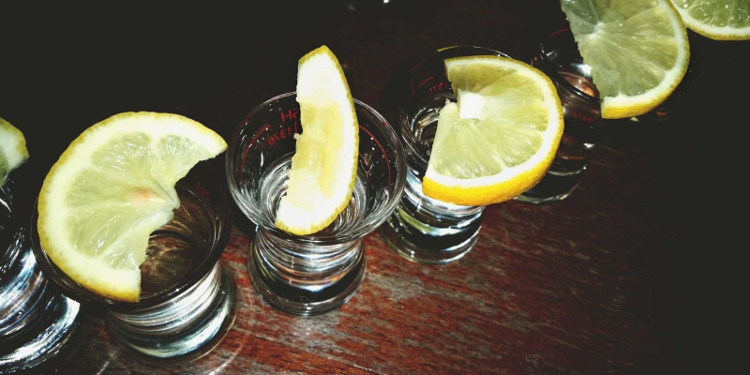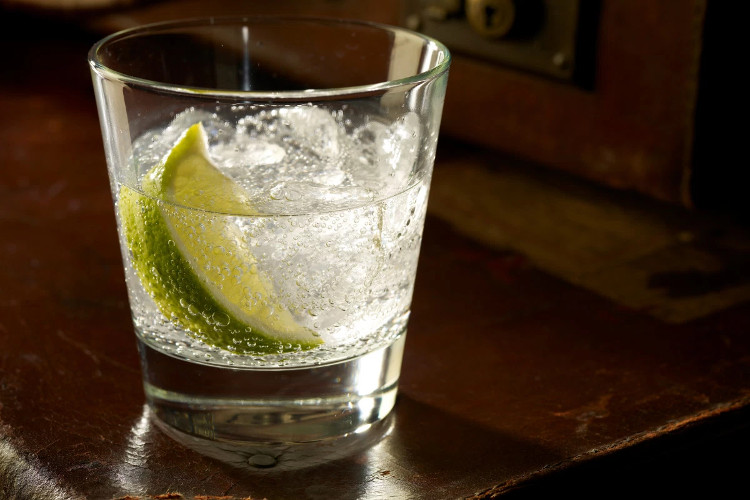The pieces of lemon in the shop, how dirty can they be?
From the luxury bars and restaurants to the sidewalk restaurant, you can see pieces of lemon anywhere. Lemon is indeed a great wedge for many drinks and foods. But if you look closely at the problem you will have to start worrying.
The health benefits of lemons are nothing to discuss, but hygiene issues do. Can you imagine the pieces of lemon in your drink, the cup or wedge in food can contain a lot of bacteria that cause disease, and some even come from waste?
A study, published in the journal Environmental Health, conducted a survey of lemon slices at 21 restaurants. They found that nearly 70% of the samples contained bacteria, including up to 25 different species of microorganisms.

Lemon slices add to drinks and food can still contain pathogenic bacteria.
"Although lemons have been known to have antibacterial properties, the results of our study indicate a wide range of microorganisms that are still capable of surviving on meat and shells of lemon slices," the researchers wrote in Conclusion section of the article.
Gourmet gourmets should know that lemon slices add to drinks and food can still contain pathogenic bacteria.
To clarify this issue, Elle had an interview with Dr. Philip Tierno, a clinical professor of microbiology and pathology at the New York University School of Medicine. Dr. Tierno is also the author of the book "The Secret Life of Germs" (roughly translated as the Mystical Life of Germs).
He chose to take sides with those concerned about the cleanliness and safety of lemon slices. Of all the research Dr Tierno conducted, he said they always point out that lemon slices "carry evidence of skin contaminants, respiratory secretions and waste problems".

Lemon slices in drinks, they can also contain bacteria in the waste.
It's unbelievable, but that's the truth, the problem of waste. Pieces of lemon contain E. coli, Enterococcus, staph, norovirus .
"Someone has to touch lemon slices in your glass, process it, cut it, place it in a glass or cup. Then, they pick a slice to drop into your glass, another time to put it on. its edge , " said Dr. Tierno . "You can easily imagine how lemon slices can be contaminated."
Even with restaurants and bars that serve with the best quality, their lemons can be washed. But those who use it, such as bartenders, cooks or maybe you don't wash your hands. This makes all hygiene procedures meaningless.
" Hand washing is one of the steps that are not completely focused, especially after using the appliance in the bathroom. There are many large studies that have proved it," Dr Tierno said.
A bit of good news is that strong enough alcohol can kill bacteria outside the lemon slices. But for diluted drinks, it does not have an absolute effect. But even so, how hard alcohol can only kill bacteria without killing the virus. There are still certain risks.
Now that you can see a lot of risks in lime pieces in the shop, do you decide to continue using them? When asked about this issue, Dr. Tierno replied , "Yes, I will use it for a while," but with some conditions. If you see a bartender to let his empty hand touch the piece of lemon, on the glass of the glass or use a dirty rag to wipe them, he will refuse the drink.
"You have to really pay attention," Dr. Tierno said.

The process of using and processing lemon is the way of infecting bacteria.
In short, unlike our traditional belief that lemons can be so sour that it kills bacteria, scientists' research shows that pathogenic bacteria can completely survive on it, then swim. Wade in your food and drink.
If you are a gourmet, you should keep in mind some important points when using lemon in a restaurant. First, make sure they are washed. Then pay attention to the bartender's hand or bartender during the process of using them.
If you are a person who uses lemon directly, make sure your hands are washed. Some people may choose to prepare their own lemon at home and put it in a bag before going to the restaurant. It takes a bit of time, but it's the only way to minimize your risk with your lime pieces.
- Why should you put a lemon on the bedside?
- How to make cool lemon tea to cool the sunny day
- How to choose fresh lemon without poisoning
- Giant lemon
- Why should you put a slice of lemon at the headboard when sleeping?
- Drinking 1 cup of lemon juice is better than a tonic
- Finger Lemon - Lemon is the most expensive salmon egg in the world
- You can use lemon to charge your phone but how much fruit will we need?
- 14 interesting effects of fresh lemon
- The truth about frozen lemon information prevents many cancers
- The 'unsanitary' habits of the Middle Ages made you cry
- Freshest fruits in the summer can cause this
 Green tea cleans teeth better than mouthwash?
Green tea cleans teeth better than mouthwash? Death kiss: This is why you should not let anyone kiss your baby's lips
Death kiss: This is why you should not let anyone kiss your baby's lips What is salmonellosis?
What is salmonellosis? Caution should be exercised when using aloe vera through eating and drinking
Caution should be exercised when using aloe vera through eating and drinking